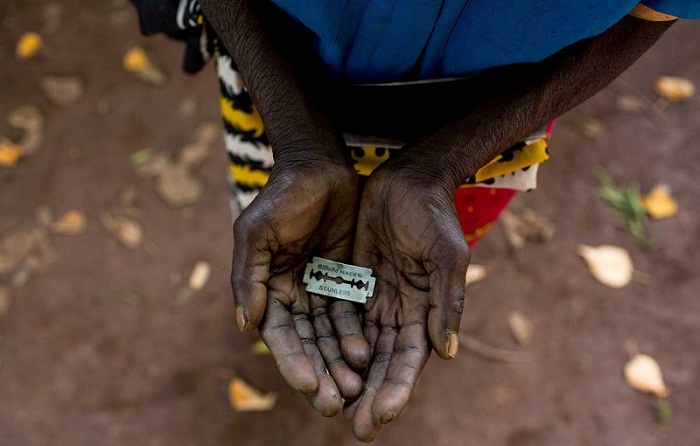Doctors claim legalising some genital mutilation may help girls

Such operations are now illegal in the UK and US, but Kavita Shah Arora and Allan Jacobs, gynaecologists based in Ohio and New York, say such laws might leave girls more vulnerable to harm by pushing the practice underground. They argue that so far, attempts to clamp down on FGM have not succeeded in wiping it out, and can be viewed as racist or culturally insensitive.
Instead, Arora and Jacobs suggest doctors should promote and perform only operations that they think will not affect women’s ability to have children or long-term sexual satisfaction, such as small nicks or removing parts of the clitoral hood or labia. This, they say, is “a compromise that respects culture and religion but provides necessary protections against child abuse”.
Their proposal is controversial. “From a human rights and health care perspective, it’s a hard pill to swallow,” says Nawal Nour, director of the African Women’s Health Center at the Brigham and Women’s Hospital in Boston, Massachusetts. “No data has ever come out to suggest that this approach would work – you can’t say that if a girl has a nick now, she won’t undergo more severe surgery five or six years down the line.”
It is also possible that more minimal procedures might not be accepted by the communities that preserve the practice, while it is difficult to predict their long-term effects. Arora and Jacobs are assuming that smaller nicks will heal completely.
But less severe surgeries can still have a strong psychological impact. “In my experience, the amount of tissue removed does not necessarily correlate with the amount of psychological damage,” says Nour. “You can’t say that nicking a girl won’t cause her any harm.”
Best abandoned
There are dangers to changing existing laws, says Brian Earp, a visiting scholar at the Hastings Center in Garrison, New York. “It would require that the laws regarding physical assault on a minor be rewritten,” writes Earp in a commentary article. He adds that women can currently use the law as a reason to object to surgery, and that laws act as important symbols for what is acceptable in society, regardless of issues of cultural sensitivity.
Some cultural practices don’t deserve respect, says Ruth Macklin, a biomedical ethicist at the Albert Einstein College of Medicine in New York. “Female genital alteration has its origin and purpose in controlling women,” Macklin writes in another comment article. “A cultural tradition designed to control women – even in its least harmful form – is best abandoned.”
Earlier this month, the International Federation of Gynaecology and Obstetrics reaffirmed its zero-tolerance stance towards female genital mutilation, calling it a violation of human rights that should be completely eliminated.















































